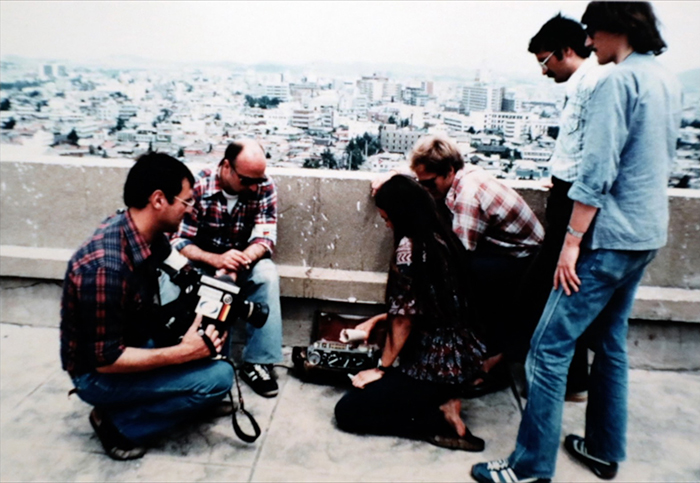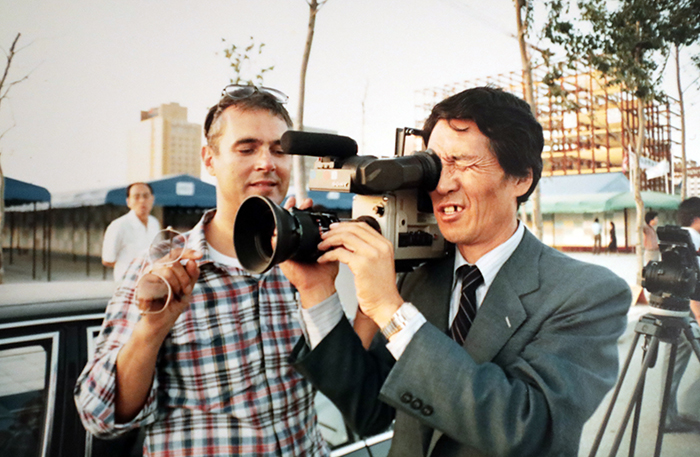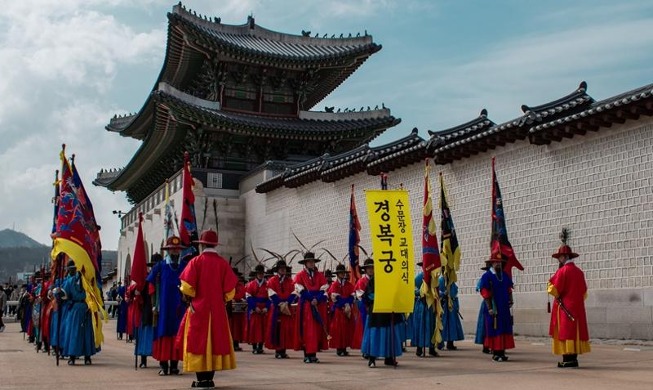-
 Korea.net's 24-hour YouTube channel
Korea.net's 24-hour YouTube channel- NEWS FOCUS
- ABOUT KOREA
- EVENTS
- RESOURCES
- GOVERNMENT
- ABOUT US

German journalist Jürgen Hinzpeter (left) covers the May 18 Democratic Uprising, on the ground in Gwangju in 1980.
By Min Yea-Ji and Lee Hana
Photos = Dreamfact Entertainment
A documentary about Jürgen Hinzpeter, the German journalist featured in the 2017 film "A Taxi Driver" (택시운전사) that brought 12 million people to the theaters last year, was released nationwide on May 17.
The latest feature, titled "5.18 Hinzpeter Story," shows actual footage from Gwangju shot by Hinzpeter himself, complete with audio. Interviews with the journalist's wife, Edeltraut Brahmstaedt, and with the son of Kim Sa-bok, the taxi driver who drove Hinzpeter through Gwangju, make appearances as well.
Since the release of "A Taxi Driver," more people have become interested in learning about Hinzpeter and his story. The documentary "5.18 Hinzpeter Story" was made for audiences who would like to know more about the truth behind the May 18 Democratic Uprising.

Jürgen Hinzpeter (left) and his taxi driver Kim Sa-bok are pictured together in Gwangju.
While the film "A Taxi Driver" was based on actual events, some parts were changed to heighten the drama. Kim Sa-bok did not, in fact, drive down to Gwangju to make an extra KRW 100,000. Hinzpeter and Kim were together at the site of activist Chang Chun-ha's death due to a fall while hiking. The two continued their partnership for at least five more years, leading up to the Gwangju Uprising. The documentary relays these facts through testimonies from Kim's son, Kim Seung Pil.
The documentary is proof that even some the most dramatic moments, like when the taxi enters Gwangju through a side road, or when the locals cheer upon meeting Hinzpeter and when men hide their film in a cookie box, are actually based on truth.
There's some fiction mixed in as well, like the thrilling escape sequence from the film when the taxi gets stopped for inspection on its way to Seoul. The documentary reveals that, in reality, Hinzpeter hid the film in his belt, and that the soldiers only checked for guns in the car, and let the car through.
The documentary director Jang Young Joo said, "After the release of the film 'A Taxi Driver,' there was a surge of interest in my 2003 documentary about Hinzpeter. I wanted to make use of the footage that we collected that didn't really get much spotlight over the past 15 years, to tell the story again."
Why is it that Koreans are suddenly so fascinated by Hinzpeter and his story?
When the German journalist was still alive, he said that even while filming, he always wanted to take part in the protest along with the citizens. Later he said that he was very happy that Korea had finally won its fight for democracy. His wife recalled that her husband had said that he wanted to be buried next to the young students who were buried in the communal graveyards.
Perhaps this explains it. People are hoping to repay a debt that they had forgotten about for several decades, a debt that they owe to a German journalist who cared deeply about democracy, and who cared for this country and its people.
jesimin@korea.kr













